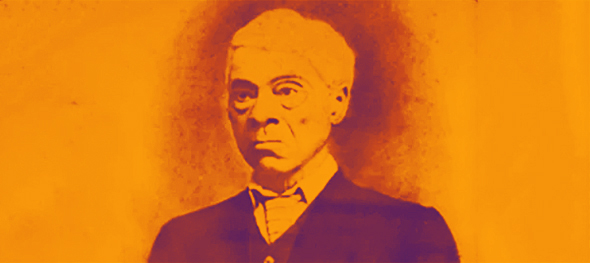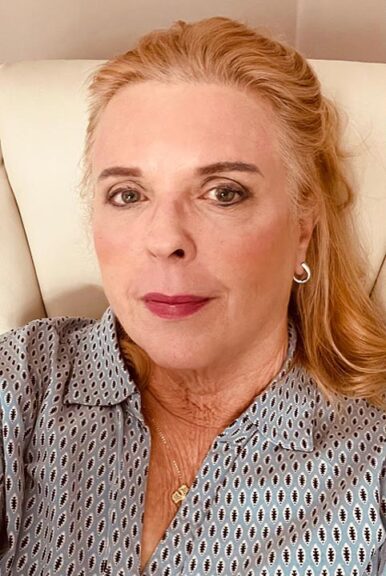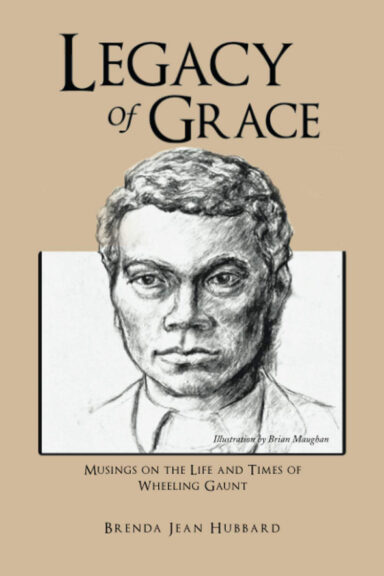
Annual Gaunt event honors foundation, author
- Published: February 26, 2021
The third annual Wheeling Gaunt Community Service Award presentation event, sponsored by the Wheeling Gaunt Sculpture Project Committee and the YS Arts Council, was held virtually on Tuesday, Feb. 23. This year’s award was presented to the Yellow Springs Community Foundation. Previous honorees were The 365 Project in 2020 and Mikasa Simms’ first grade class at Mills Lawn in 2019.
“We decided to acknowledge the Yellow Springs Community Foundation because their support for our community, especially during the COVID-19 pandemic, has been pitch perfect to the type of legacy that Wheeling Gaunt left for our town,” said Sculpture Project Manager Cheryl Durgans.
In the days immediately following Ohio’s stay-at-home order, the Community Foundation leaped into action, forming groups to address food insecurity, collecting and distributing masks — which were difficult to find early in the pandemic — to essential workers, and, with the YS Credit Union, establishing a fund to distribute emergency loans to residents. Soon after, the Community Foundation again partnered with the YS Credit Union to establish low-interest loans for small businesses and nonprofit organizations affected by the statewide shutdown.
Durgans added that the foundation is also being honored for their history of being “a strong supporter of social justice efforts in Yellow Springs.”
The pre-recorded event will also include talks about the status of the upcoming sculpture from Durgans and YS Arts Council President Jerome Borchers, as well as artist Anthony Maughan, who has taken over the process of casting the bronze sculpture of Wheeling Gaunt after the death of his father and creator of the sculpture, Brian Maughan; and Brenda Jean Hubbard, who recently published “Legacy of Grace: Musings on the Life and Times of Wheeling Gaunt.”
In years past, the in-person event has featured flour-and-sugar cookies baked using a 19th-century recipe unearthed by the YS Historical Society. The cookies were served in honor of the annual delivery of flour and sugar to local widows and widowers in Gaunt’s name — a legacy of his bequest to the Village of the land that now encompasses Gaunt Park. Though this year’s event will be virtual, villagers can still enjoy the cookies as they attend the online presentation from the comfort of their homes: Current Cuisine is selling sugar cookies bearing Wheeling Gaunt’s initials until the day of the event, or until they run out. Partial proceeds from the sale of the cookies will benefit the Sculpture Project.
State of the sculpture
2020 was a rough year for the Sculpture Project. Project Manager Cheryl Durgans (who is also a reporter for the YS News) said the committee, which had planned to unveil the sculpture in fall of 2020, was “hit hard” by the pandemic.
“Just like everyone else, when COVID hit, it took us a while to get our bearings,” she said.
Adding to the struggle were the deaths of two people who had been crucial to the project: longtime villager Phyllis Jackson, who lent her wealth of historical knowledge to the committee, died in July; and sculptor Brian Maughan, with whom the committee had worked since 2017 to create the bronze likeness of Gaunt, followed in August.
“We finally got our sea legs back in September and October,” Durgans said, citing the recent formation of the project’s Site Committee as helping to get the sculpture’s unveiling — now slated for this summer — back on track.
“We don’t want to just plunk it down in Hilda Rahn Park and say, ‘Here you go,’” Durgans said. “We have a really heavy-hitter committee that’s working to make it a place that respects the natural environment and allows visitors the space to contemplate [Gaunt’s] life.”
Perhaps most significant to the Sculpture Project’s progress was painter and sculptor Anthony Maughan’s decision to step into the shoes of his late father, and finish the work that he’d started.
“I don’t know if [the committee] knew that I was a sculptor, but after a few months I reached out,” Maughan said. “I didn’t want them to have to look for someone else — somebody who maybe didn’t know Brian or wouldn’t have the continuity that I have.”
Maughan, who lives in Detroit, Mich., but who’s been in Yellow Springs since he began work on the Gaunt sculpture, said that the project is reaching its home stretch — which will last another several months. Maughan will spend another four to six weeks to finish the clay form, and then make a trip to Ann Arbor, Mich., where the three-month bronze casting process will begin.
“The process was pretty far along when I took over after my dad died, but the nature of these things is that the last 10 percent becomes 50 percent,” he said. “You keep refining and making these decisions that are subtle, but significant — the devil is in the details.”
Maughan, whose medium for the last several years has been painting, began learning the art of bronze sculpture half his life ago, at the age of 20, under the guiding hand of his father. Living in Yellow Springs for the past several months, he said, has been emotionally significant for him, as he and his stepmother, Marie Hertzler, mourn the loss of Brian Maughan. Working on the sculpture, however, has not been “particularly emotional,” he added.
“I think that’s because my father’s approach was that the sculpture was not a personal vision of his, but that he was serving the community, and that this work wasn’t meant to be about him,” Maughan said. “He was interpreting the vision of his community, to some degree, and I feel that I’m attempting to step into that role of service.”
Wheeling Gaunt’s ‘Legacy of Grace’

Brenda Jean Hubbard, author of “Legacy of Grace: Musings on the Life and Times of Wheeling Gaunt,” spoke on the newly published book at the third annual Wheeling Gaunt Onyx Overview event, held Feb. 23. (Submitted photo)
Village native Brenda Jean Hubbard hadn’t originally set out to write a chronicle of the life of Wheeling Gaunt — instead, the retired theater actor, director and Central Washington University professor had intended to write a novel about a girl growing up in 1960s Yellow Springs, loosely based on her own young life. When she delved into historical research about the village, however, she ran across repeated reference to Wheeling Gaunt, a formerly enslaved Black landowner and philanthropist in 19th-century Yellow Springs, and became “quite enamored” with the historical figure. Wanting to know more, she went in search of a book about Gaunt’s life — and found that there wasn’t one.
“I got kind of annoyed — I said to some of my friends, ‘Are you kidding me? Nobody’s written a book about the man’s life?’” she said. “And they said to me, ‘Well, why don’t you? Go ahead and do it!’”
“This is what you get when you open your big mouth,” she added.
Seven years later, Hubbard has finally published the book she’d wished she could read; she will speak about the process of writing the book and read an excerpt at the Sculpture Project’s virtual event.
Writing the book was a challenge, Hubbard said, for a variety of reasons. First, she said, is that this was her first book — and a historical book, no less.
“I don’t claim to be a schooled historian — I taught myself how to write the book, so God only knows if I got it even close to right,” she said with a laugh. “But I hoped that, by writing this, I’d open the door for conversation — even if that conversation is, ‘Oh, you really didn’t get that right at all.’”
Another challenge was the dearth of historical documentation illuminating the facts of Gaunt’s life. Hubbard was able to draw some inspiration from visiting Carrollton, Ky., where he and his family lived before moving to Yellow Springs. Gaunt’s ownership of large amounts of property in the Miami Valley meant that she had real estate and probate records to reference in order to obtain hard data, but such historical documents are often faded by time or written in the ornate hand common to the period, and thus difficult to read. Beyond those records, however, even simple facts — like Gaunt’s exact birth date or even how his name was originally spelled — remain oblique.
“There are so many things we don’t know, so often what I had to do was research the period [in which Gaunt lived] and speculate about what I think might have happened,” Hubbard said.

The cover of Legacy of Grace: Musings on the Life and Times of Wheeling Gaunt, by Brenda Jean Hubbard (Submitted photo)
Much of that speculation revolves around Gaunt’s early life, which began on a Kentucky plantation in 1812. Wheeling Gaunt was fathered by his enslaver, John Gaunt, and Hubbard’s book suggests that this exploitative parentage may have caused tension between John Gaunt and his wife, Nancy, resulting in Wheeling Gaunt’s mother being sold to another enslaver when he was only 4. Based on her research of the time, Hubbard’s writing also puts forth the idea that a relationship with his enslaver and father might have influenced the business acumen that allowed him to free not only himself, but his wife, Amanda, and a male relative, from enslavement, and that would eventually make him a successful landowner in Yellow Springs.
“I think that [Gaunt] would have observed his father in business all the time, and his father was probably — if for no other reason than to affirm his own ego — pleased to see how smart Wheeling was and probably encouraged him to some degree,” she said.
Outside of the challenges of historical accuracy, Hubbard — who is white — said she had some anxiety over whether it was her place to write a book about the life of a Black man.
“I just didn’t know if I had any authority or if I would be considered a person who was misappropriating history,” Hubbard said.
Hubbard consulted a number of Black friends and colleagues during the process of writing. Of tremendous help, she said, was villager and Antioch College professor and historian Dr. Kevin McGruder, who will introduce Hubbard at the upcoming virtual event.
“He was very forthright in his guidance about my writing,” Hubbard said. “He was wonderfully insightful — wise and -scholarly.”
“Legacy of Grace” occasionally ties back into Hubbard’s own life and experiences in Yellow Springs, but during the writing process, she said McGruder cautioned her against letting her own perspective — that of a white woman — dominate the historical narrative.
“We are so used to the white narrative that it can be really, really hard not to lapse into it all the time,” Hubbard said. “So [McGruder] was really straightforward with me — he helped me understand that there is value in my own perspective, but that if I were to lead with that or let that dominate, then it would be all about me.”
Hubbard also consulted several colleagues at the National Underground Railroad Freedom Center in Cincinnati while writing the book. She recalled that one of them also expressed their frustration about the tendency of white creators to profit from Black narratives.
“‘I’m really tired of white people capitalizing on and making money off of Black stories,’ they told me, and I thought, ‘Oh wow, it was never my intention to make money off of this — I mean, you don’t make much off of writing books anyway, but I don’t even want the appearance of that,’” she said.
To that end, Hubbard said, all proceeds from the sale of the book will benefit The 365 Project, a local nonprofit that works to promote Black heritage, culture and educational equity.
“I believe very strongly in the work that they’re doing,” Hubbard said.
Despite the care she’s attempted to take with both the book’s subject matter and its profits, Hubbard said she still expects to receive a certain amount of criticism — and she said she’s OK with that.
“Criticism is a normal and necessary part of life,” she said. “If we’re willing to risk getting it wrong, and then start talking about things, then we can learn how to get it right.”
Cheryl Durgans said Hubbard also spoke with her while in the process of writing the book — a conversation that Durgans said reflected the importance of the story of Gaunt’s life.
“If you live here, the best thing that you can do is to be invested in understanding who Gaunt was and what his life was about, no matter what your ethnicity,” Durgans said.
She pointed out that Gaunt was “holistic in his approach to giving” — his bequest stated that the widows and widowers who now receive flour and sugar every year be cared for “regardless of race, creed or color.”
“It’s flour and sugar to everybody,” she said.
The third annual Wheeling Gaunt Community Service Award event will be held Tuesday, Feb. 23, beginning at 6:30 p.m. To register and receive a link to the event, visit ysartscouncil.org, facebook.com/YellowSpringsArtsCouncil or bit.ly/3djC2wT.
One Response to “Annual Gaunt event honors foundation, author”
The Yellow Springs News encourages respectful discussion of this article.
You must login to post a comment.
Don't have a login? Register for a free YSNews.com account.











My grandmother would have been a good person to live in YSO. She extended credit to anyone who needed to clothe their youngins for school back in the late 50;s and 60’s from her little used clothing shop adjacent to her home in rural London. She never said an unkind word ’bout anyone and never anything ’bout the color of ones skin. All people were God’s children and she helped clothe them as such. I think her and Mr. Gaunt would have gotten along fine. World needs more people like them.